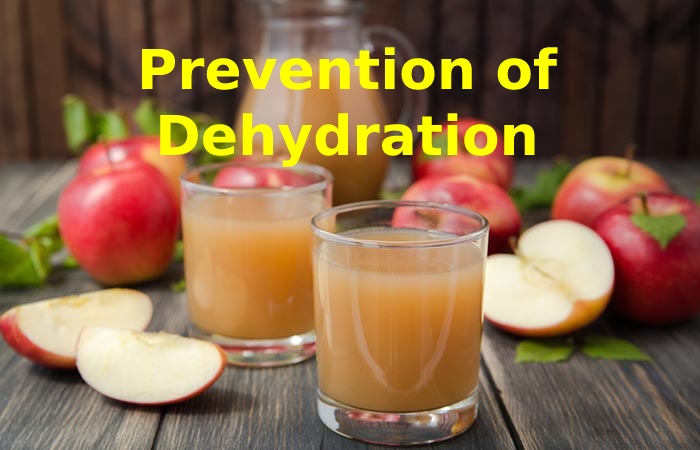Table of Contents
What is Dehydration?
Dehydration results from an imbalance between water loss and intake, resulting in a lack of water and mineral salts in the body. Since the body cannot store water indefinitely, water intake (via drinks and food) must always be equivalent to water loss (mainly caused by urine and sweat in average time).
Infants and young children are more at risk of Dehydration when their water losses are not sufficiently compensated by intake. This balance is critical as the human body is mainly water. Indeed, 65% of a child’s weight over the age of one is made up of water, and this percentage even rises to 80% in newborns.
Symptoms of Mild to Moderate Dehydration Include:
- Thirst
- Reduced sweating
- Decreased skin elasticity
- Decreased urine production
- Dry mouth
How do you get Dehydration?
If the water losses are excessive and not compensated by an intake (by drinking or consuming water-rich foods), we become dehydrated. This phenomenon generally occurs following diarrhoea, vomiting, intense effort or during periods of high heat.
The consumption of alcohol, coffee or diuretic drugs can also be a factor of Dehydration.
Finally, a high fever or diabetes (causing high blood sugar levels) are also recognized causes.
- Diagnosis of Dehydration
- Doctor’s assessment
Sometimes blood tests
The diagnosis of Dehydration is often made from the symptoms and the medical examination results. But sometimes, doctors need to do blood tests on people who are seriously ill, take certain medications, or have certain conditions.
Dehydration generally leads to an increase in sodium levels in the blood. Although the most common causes of Dehydration (such as profuse sweating, vomiting, and diarrhoea) often result in a simultaneous loss of electrolytes (essentially sodium and potassium), the amount of water lost is even more tremendous, increases the concentration of sodium in the blood.
Prevention of Dehydration

Prevention of Dehydration is preferable to treatment. Adults should beverage at least six glasses of juices a day (including fluids from water-rich foods, such as fruits and vegetables). You should drink more on hot days or during or after prolonged exercise and, if possible, when you vomit and have diarrhoea.
Physical exercise, high body temperature and a hot climate increase the body’s water needs. Drink fluids and electrolytes before, during and after physical exercise. Game drinks have formulated to replace electrolytes lost during intense physical exertion. These drinks can remain used to foil Dehydration. Before physical activity, people who suffer from heart or kidney problems should consult their doctor to find out how to rehydrate properly.
The Dangers of Dehydration in the elderly
It is a phenomenon that occurs when a person loses more water than they take in. Adequate hydration (sufficient water intake) allows the body of older people to regulate its temperature through perspiration, maintain proper blood pressure and eliminate waste from the body.
In the most severe cases, the consequences of it in the elderly are as follows:
- confusion,
- weakness,
- urinary infections,
- pneumonia,
- bedsores in bedridden patients,
- emergency hospitalization.
Who Is Susceptible To Dehydration?
Although dehydration can affect anybody, some groups are more vulnerable than others. These consist of the following:
- Babies and newborns are susceptible to even tiny quantities of fluid loss because of their low body weight.
- Older folks may be less conscious of their need to stay hydrated and continue drinking fluids.
- When exercising for extended periods, persons with long-term health conditions like diabetes or alcoholism might lose a lot of bodily fluid through sweat.

